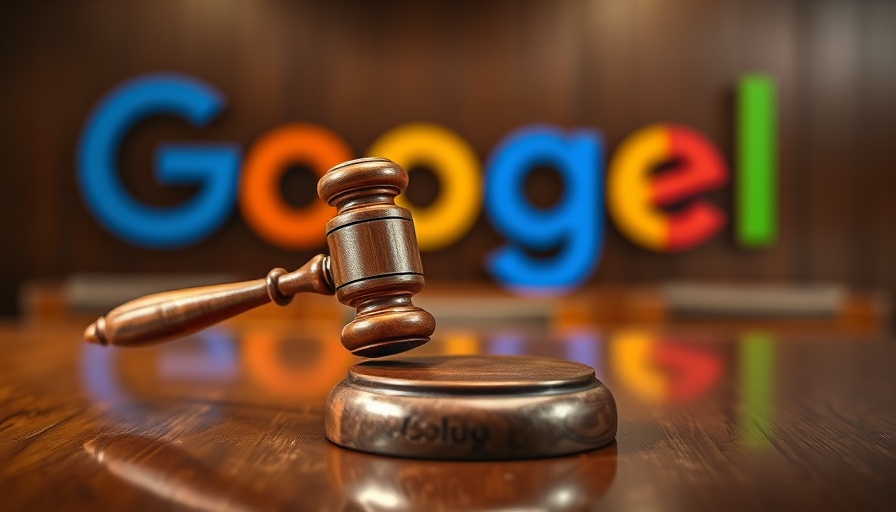
Chegg vs. Google: The Consequences of AI-Driven Search Results
In a bold move, Chegg has initiated a federal antitrust lawsuit against Google, claiming that the tech giant's AI-generated search results have severely impacted its visitor traffic and overall revenue. This lawsuit, filed in the U.S. District Court in Washington, D.C., is a pivotal moment in the ongoing debate over how dominant tech companies utilize AI to reshape user experiences at the expense of smaller platforms.
Understanding the Core of the Conflict
Chegg, a prominent online learning platform known for providing educational resources and homework assistance, alleges that Google’s AI Overviews—the automated feature designed to give users direct answers to their questions—have actively diverted traffic away from its site. Chegg’s CEO, Nathan Schultz, has expressed deep concerns, stating that Google’s strategy has been detrimental to Chegg’s business operations and employee stability.
The essence of Chegg's argument rests on the claim that Google is monopolizing the search engine space by retaining traffic that would have historically gone to external sites. With users increasingly relying on immediate Google-supplied answers, Chegg argues it has been left in a precarious position. Their traffic has reportedly fallen dramatically, leading to a staggering 90% drop in stock prices and forcing the company to consider drastic measures like going private or selling its operations.
The Broader Implications for AI and Content Creators
This lawsuit not only highlights a pivotal confrontation between a smaller player and a tech behemoth but also points to a growing unease within the tech community about the ramifications of AI-generated content. Numerous content creators have voiced their frustrations with Google’s growing power to design search experiences that, according to them, diminish the necessity of directly visiting creator sites.
The implications are far more profound than just intended revenue losses for companies like Chegg. If users become accustomed to receiving consolidated answers without following links to original sources, the entire structure of the internet—one built on traffic exchange and site visits—could face significant disruption. Chegg has argued that this could lead to an information ecosystem that is less diverse, lacking the robust historical richness of content that various platforms have provided.
Potential Repercussions for Google
Google, for its part, has defended its AI Overviews by stating they enhance the user experience by providing a greater array of information more quickly. Spokesperson José Castañeda has pointed out that Google continues to drive billions of clicks to external sites every day, suggesting that its AI innovations are not only beneficial to users but also to content creators.
However, critics—including Chegg—assert that this is an unsustainable model that places power squarely in Google's hands, consequently suffocating smaller competitors. According to Chegg, the AI-powered summaries mistakenly generate an illusion of a helpful search experience while undermining the value of direct engagement with content-rich sites.
A Future with Regulations on AI Usage?
As this legal battle unfolds, there is a greater discussion emerging about the need for regulations in the AI domain. Already, discussions are taking place regarding Google’s monopoly over search practices, with Chegg’s lawsuit adding to the growing body of evidence calling for changes in how tech giants operate.
Regulations could enforce fairer distribution channels for content and open up more opportunities for companies competing in the tech space. Current sentiments suggest there is an urgent need to reassess the obligations of tech giants toward smaller entities leveraging their platforms for distribution.
What This Means for AI Lovers and the Digital Landscape
For AI enthusiasts, the lawsuit presents an opportunity to reflect on the ethical implications of using AI to curate information. As AI becomes increasingly embedded in our daily interactions with technology, it heightens the need for responsible, fair practices. Creators of educational content, like Chegg, represent voices that remind us of the complexities that accompany innovation and advancement.
The outcome of this lawsuit could significantly influence AI development and implementation strategies at large corporations, potentially reshaping the landscape of digital engagement.
Moving Forward: The Call for Collaboration
As we navigate these uncharted waters, a collaborative approach between tech giants and content creators will be vital. Striving for transparency in the use of AI, while safeguarding the interests of those who create valuable content, must be at the forefront of discussions. AI should empower, not overshadow, existing structures that support creativity and knowledge sharing.
Chegg’s move against Google marks not just a legal dispute but a critical intersection of technology, ethics, and business that resonates with all digital stakeholders.
 Add Row
Add Row  Add
Add 


 Add Row
Add Row  Add
Add 

Write A Comment